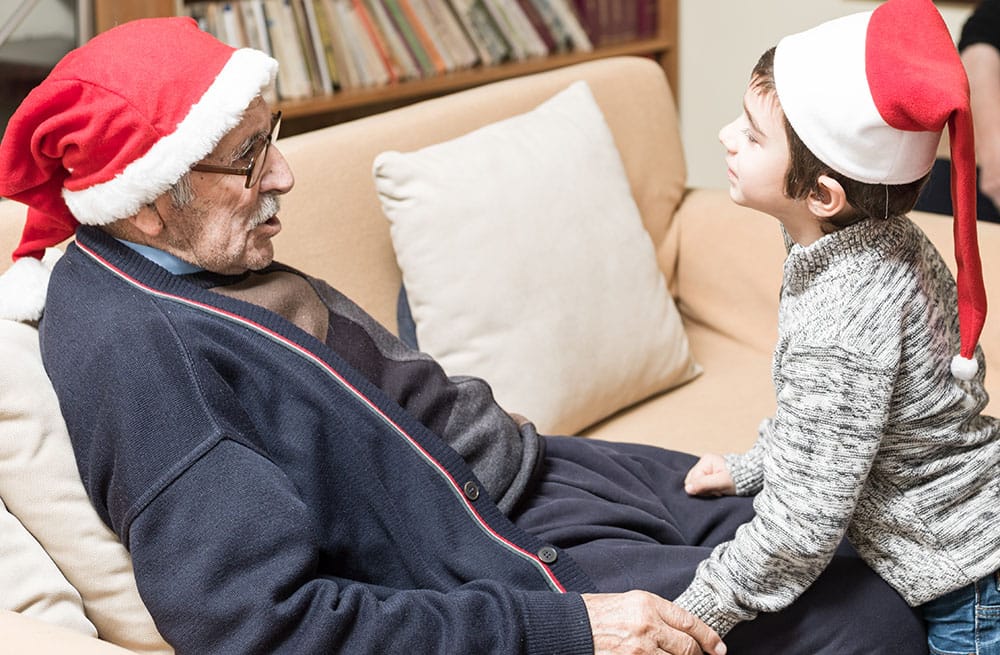A Millennial's Guide to Grief in a Digital World

For millennials, dealing with grief may be a new experience. Others know it all too well. Ranging from late teens through early thirties, millennials are old enough to clearly understand tragic events, interpret the emotions of those around them, and remember significant memories of a departed loved one. Additionally, millennials are mature enough to support and comfort friends and family members who are experiencing a loss.
As always, grieving experiences can be both similar and unique from individual to individual and generation to generation. For this generation (millennials), the stages and impact of grief can significantly differ from those of older generations due to a number of factors in how they both experience and cope with it.
Social Media as Support
Millennials have grown up in the digital age. As “digital natives,” it is only natural that they look toward technology such as social media as a coping mechanism in some of their most difficult times.
Social media can be a useful tool for showing support for a grieving friend or family member. From sharing a photo of a cherished memory on Instagram to posting a kind prayer on someone’s Facebook wall, helping a friend or family member through a tough time can be as simple as hitting “post.”
Older generations may find this type of interaction to be impersonal or not enough. Oftentimes, it’s not. But many other times – with millennials especially – it can be. What it truly boils down to are three things:
- What is said
- How it is said
- What real-world action follows
Technological platforms offer a number ways to cope and help those around one cope – from apps specifically designed for the grieving to online support groups to the posting of a simple message noted above. For a more detailed account of how to navigate these grief venues accordingly, visit the Crossroads Hospice & Palliative Care blog on how Facebook helps us cope.
What to Say and How to Say It
In a broader sense, there are some guidelines millennials can follow in effectively helping each to cope with grief in today's digital, millennial-fueled world.
Always reach out. As noted, reaching out for millennials is easier than it’s ever been before. No needs to drive to someone’s house or even go to the store to buy them a card. The avenues for a simple expression of sympathy are plentiful in today’s digital world.
But let family have the first word. It can be hard to tell when it is appropriate to begin sharing sympathies. On social, let the closest family members of the recently deceased post first. This is a sign they are ready to share with the rest of their world what has occurred. Also, before sharing a post, make sure that all of the information you have received about the deceased, the grieving, and their situation is correct.
Don’t overdo it. And don’t over-post. If you find yourself questioning the grieving family or friends for more information, it may be time to take a step back. This is a sensitive time for them and these conversations can be too soon or come off as nosy and intrusive. Instead of asking for more details, simply let them know you are there for them and leave it at that.
Avoid generalities. It’s easy to resort to overused and sometimes meaningless phrases when trying to find the words to say. Sayings like “They’re in a better place,” and now, for millennials, things like a set of heart emojis or a gif can be misconstrued as insincere. Unless those emojis have a special meaning between you and the person in grief, avoid them and craft a personal message to share your sympathy.
Follow up on offers and promises. It’s easy to take to digital platforms and text messages to say things like “I’m here if you need me.” It’s not always so easy to actually follow up on those offers. But it means a lot when you do. So if making a promise in your communication to a person in grief, keep it. If you say you’ll be at the funeral, be there. It’s always comforting to see a familiar face in support.
Think about yourself, too. Social media not only lets you help those experiencing a loss, but can help you cope in these situations as well. During tough times, social media can be used to share how you feel. Perhaps you are not ready to receive that influx of support just yet. A simple post can do the job; “Thank you all for the support, but please give me some space as I go through this difficult time.”
Again, these are general guidelines for coping with grief as a millennial in a digital world. It is important to remain mindful in any situation of the fact that everyone grieves differently, regardless of age.
Person-to-Person Comfort
Using social media and digital devices as a means of communication might be what you are most comfortable with, but sometimes in-person support is the best way to deal with a loss. Eventually, many find it healthy and refreshing to cope through real-world, face-to-face interaction with other people who can relate.
Though it might be difficult, physically showing your support by attending a service, or sitting and talking with a friend or family member who suffered a loss can be more effective than just sending a text. Even if it’s for a short while, reminiscing on cherished times and being available to just chat is more helpful than you think. If you want more ideas on what to say to someone who is grieving, read the Crossroads blog on finding the right words.
As for finding some extra support yourself, Crossroads offers a seven-to-twelve week bereavement support program for anyone looking for a safe place to mourn. The Grief Recovery Method Outreach Program can help you understand a number of useful actions to take in trying to move beyond the pain of a loss.
If you or a loved one is coping with a loss, either give us a call at 1-888-564-3405 or find a grief recovery group near you.
Recommended Reading:
How to Cope with the Death of a Friend
How to Support a Grieving Coworker
Why Experts Talk About Symptoms, Not Stages of Grief
If you found this information helpful, please share it with your network and community.
Copyright © 2017 Crossroads Hospice & Palliative Care. All rights reserved.



